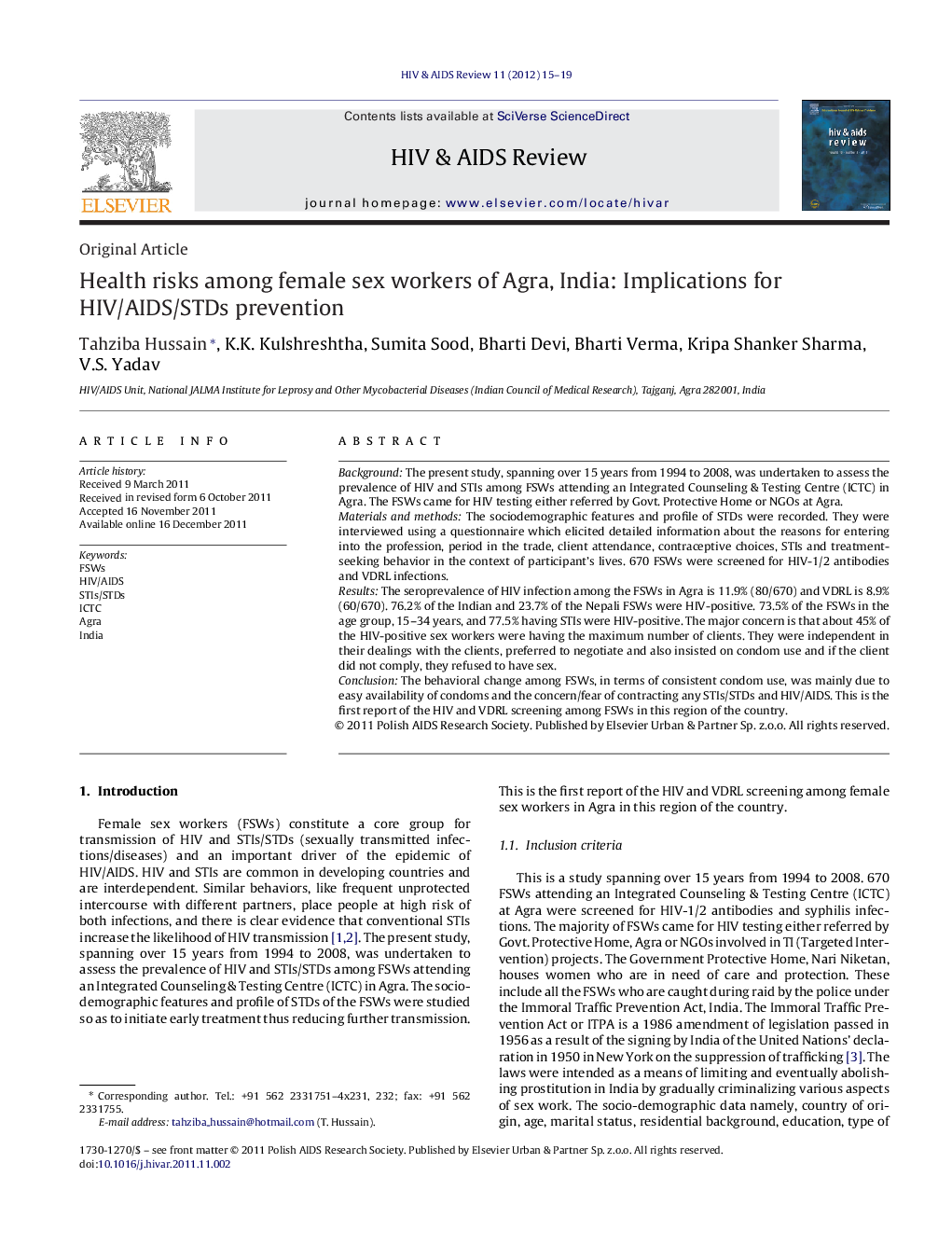| Article ID | Journal | Published Year | Pages | File Type |
|---|---|---|---|---|
| 3332418 | HIV & AIDS Review | 2012 | 5 Pages |
BackgroundThe present study, spanning over 15 years from 1994 to 2008, was undertaken to assess the prevalence of HIV and STIs among FSWs attending an Integrated Counseling & Testing Centre (ICTC) in Agra. The FSWs came for HIV testing either referred by Govt. Protective Home or NGOs at Agra.Materials and methodsThe sociodemographic features and profile of STDs were recorded. They were interviewed using a questionnaire which elicited detailed information about the reasons for entering into the profession, period in the trade, client attendance, contraceptive choices, STIs and treatment-seeking behavior in the context of participant's lives. 670 FSWs were screened for HIV-1/2 antibodies and VDRL infections.ResultsThe seroprevalence of HIV infection among the FSWs in Agra is 11.9% (80/670) and VDRL is 8.9% (60/670). 76.2% of the Indian and 23.7% of the Nepali FSWs were HIV-positive. 73.5% of the FSWs in the age group, 15–34 years, and 77.5% having STIs were HIV-positive. The major concern is that about 45% of the HIV-positive sex workers were having the maximum number of clients. They were independent in their dealings with the clients, preferred to negotiate and also insisted on condom use and if the client did not comply, they refused to have sex.ConclusionThe behavioral change among FSWs, in terms of consistent condom use, was mainly due to easy availability of condoms and the concern/fear of contracting any STIs/STDs and HIV/AIDS. This is the first report of the HIV and VDRL screening among FSWs in this region of the country.
